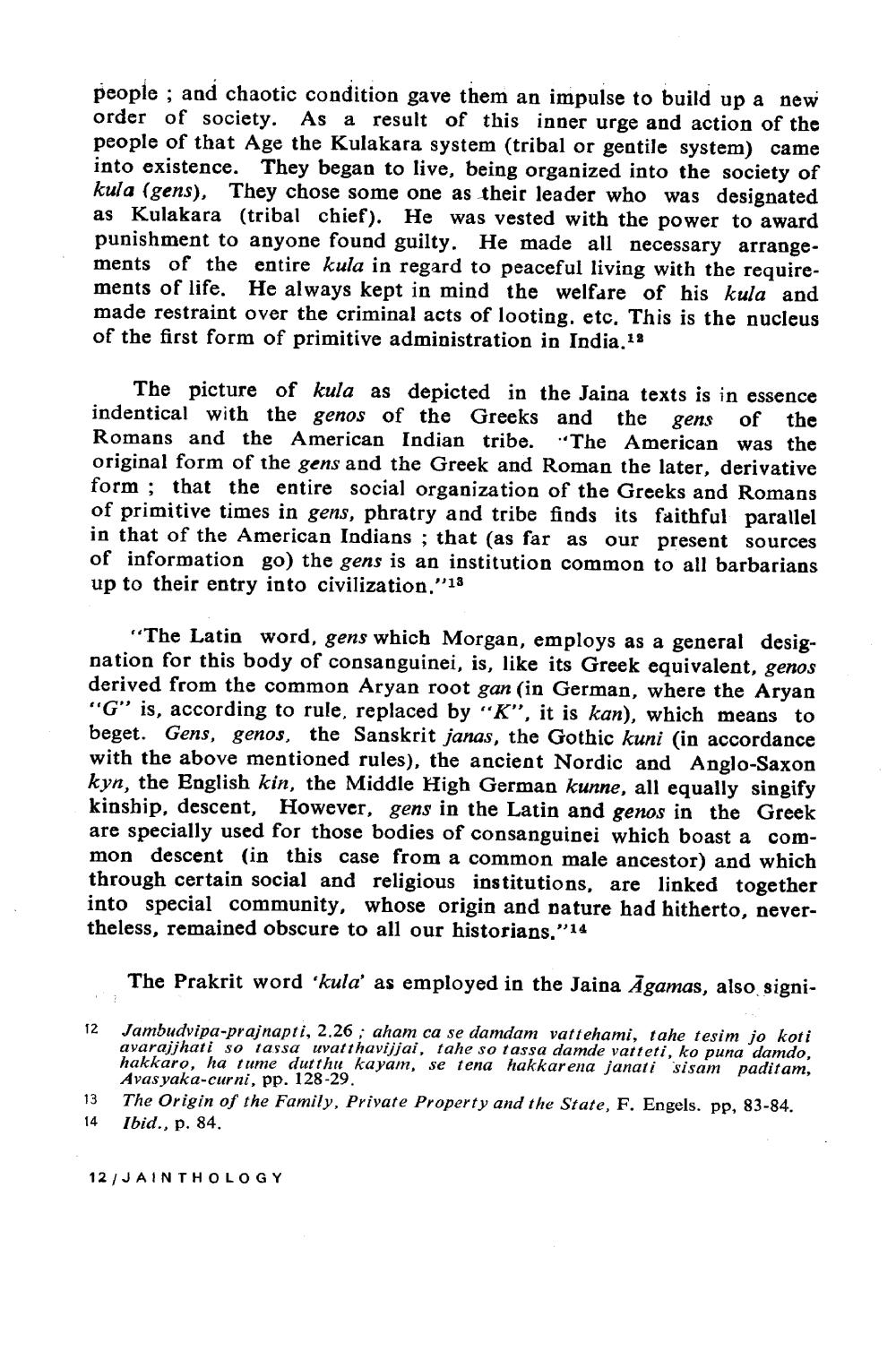________________
people ; and chaotic condition gave them an impulse to build up a new order of society. As a result of this inner urge and action of the people of that Age the Kulakara system (tribal or gentile system) came into existence. They began to live, being organized into the society of kula (gens), They chose some one as their leader who was designated as Kulakara (tribal chief). He was vested with the power to award punishment to anyone found guilty. He made all necessary arrangements of the entire kula in regard to peaceful living with the requirements of life. He always kept in mind the welfare of his kula and made restraint over the criminal acts of looting. etc. This is the nucleus of the first form of primitive administration in India. 18
The picture of kula as depicted in the Jaina texts is in essence indentical with the genos of the Greeks and the gens of the Romans and the American Indian tribe. "The American was the original form of the gens and the Greek and Roman the later, derivative form; that the entire social organization of the Greeks and Romans of primitive times in gens, phratry and tribe finds its faithful parallel in that of the American Indians ; that (as far as our present sources of information go) the gens is an institution common to all barbarians up to their entry into civilization."13
"The Latin word, gens which Morgan, employs as a general designation for this body of consanguinei, is, like its Greek equivalent, genos derived from the common Aryan root gan (in German, where the Aryan "G" is, according to rule, replaced by “K”, it is kan), which means to beget. Gens, genos, the Sanskrit janas, the Gothic kuni (in accordance with the above mentioned rules), the ancient Nordic and Anglo-Saxon kyn, the English kin, the Middle High German kunne, all equally singify kinship, descent, However, gens in the Latin and genos in the Greek are specially used for those bodies of consanguinei which boast a common descent (in this case from a common male ancestor) and which through certain social and religious institutions, are linked together into special community, whose origin and nature had hitherto, nevertheless, remained obscure to all our historians."14
The Prakrit word 'kula' as employed in the Jaina Agamas, also signi
12
Jambudvipa-prajnapti, 2.26 ; aham ca se damdam vattehami, tahe tesim jo koti avarajjhati so tassa uvatthavijjai, tahe so tassa damde vatteti, ko puna damdo, hakkaro, ha tume dutthu kayam, se tena hakkarena janati sisam paditam, Avas yaka-curni, pp. 128-29. The Origin of the Family, Private Property and the State, F. Engels. pp, 83-84. Ibid., p. 84.
13 14
12/JAINTHOLOGY




